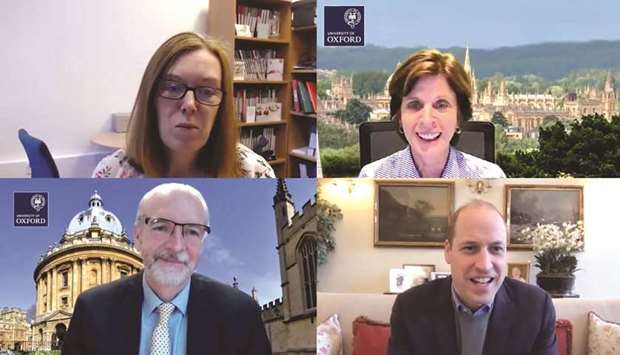AstraZeneca said on Monday its Covid-19 vaccine could be as much as 90% effective, giving the world's fight against the global pandemic a new weapon, cheaper to make, easier to distribute and faster to scale-up than rivals.
The British drugmaker said it will have as many as 200mn doses by the end of 2020, around four times as many as US competitor Pfizer. Seven hundred million doses could be ready globally as soon as the end of the first quarter of 2021.
"This means we have a vaccine for the world," said Andrew Pollard, director of the Oxford University vaccine group that developed the drug.
The vaccine on average prevented 70% of Covid-19 cases in late-stage trials in Britain and Brazil but the success rate rose to 90% if the vaccine was administered as a half dose followed by a full dose. The efficacy was 62% if the full dose was given twice, as it was for most study participants.
No serious safety events were confirmed, the company said.
AstraZeneca's shares fell 4%, on track for their worst daily performance in six-months, as investors perceived the efficacy data as disappointing compared with rivals. Pfizer and Moderna , which reported that their vaccines prevented around 95% of cases, had set the bar for success sky-high.
The AstraZeneca shot does, however, have some advantages over offerings from US rivals.
The drug's cost to governments works out at just a few dollars a shot, a fraction of the price of shots from Pfizer and Moderna, which use a more unconventional technology.
It can also be transported and stored at normal fridge temperatures, which proponents say would make it easier to distribute, especially in poor countries, than Pfizer's, which needs to be shipped and stored at -70C.
The faster roll-out means both rich and poor countries that had been drawing up plans to ration vaccines can distribute them more widely, helping to eventually halt the social and economic disruption of a pandemic that has killed 1.4mn people.
"The bulk of the vaccine rollout programme will be in January, February, March. And we hope that sometime after Easter things will be able to start to get back to normal," said Matt Hancock, health secretary of Britain which has pre-ordered 100mn doses for its 67mn people.
In poor countries, where the logistics of distributing rival vaccines posed a bigger challenge, the effect of a cheaper and easier alternative could be even more pronounced. Zahid Maleque, health minister of Bangladesh, which is buying in 30 million doses of the AstraZeneca vaccine made in India, called the findings "really good news".
"The big advantage of having the vaccine is that it can be stored, transported and handled at 2-8 degrees Celsius, and we have that storage facility," he said.
The World Health Organization's chief scientist Soumya Swaminathan called the results "encouraging" and said the health body looked forward to seeing the data.
The AstraZeneca vaccine uses a modified version of a chimpanzee cold virus to deliver instructions to cells to fight the target virus, a different approach from Pfizer and Moderna, which rely on new technology known as messenger RNA (mRNA).
AstraZeneca will now prepare regulatory submission of the data to authorities around the world that have a framework for conditional or early approval. It will also seek an emergency use listing from the WHO to speed up availability in poor countries.

